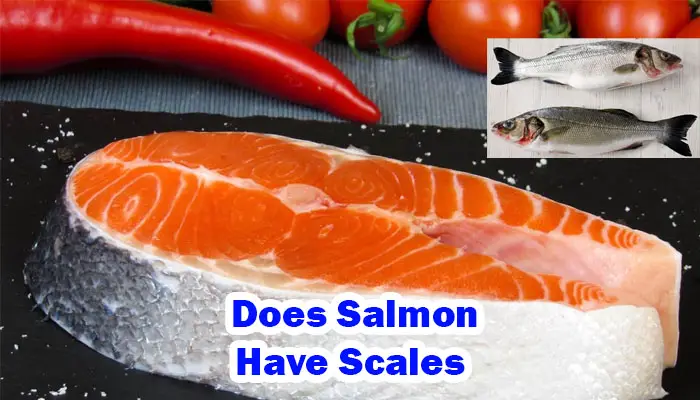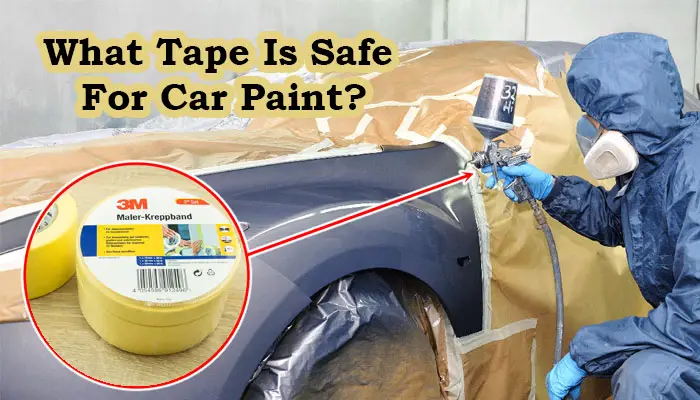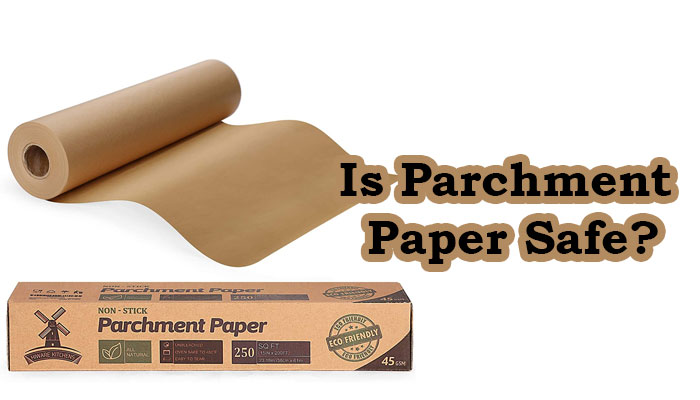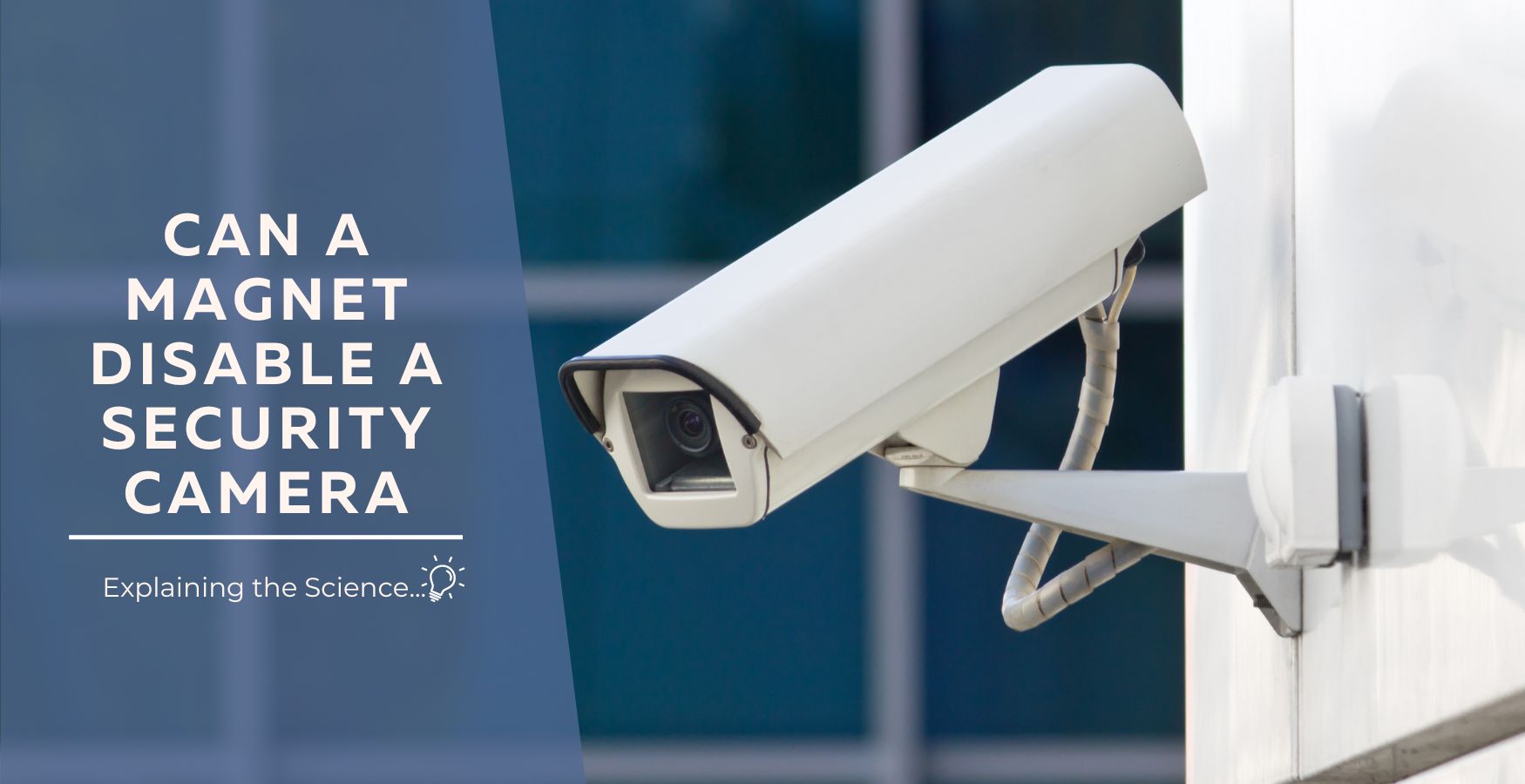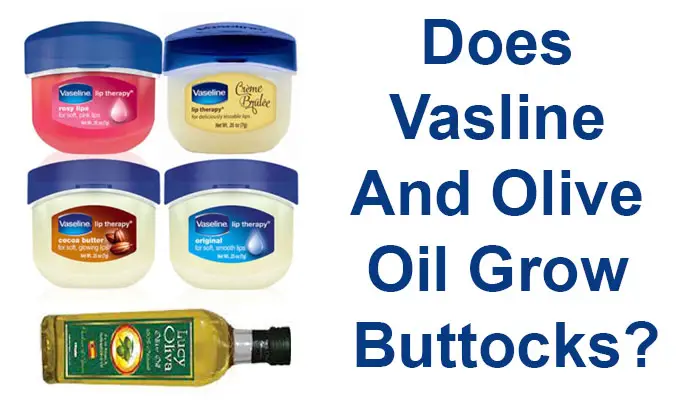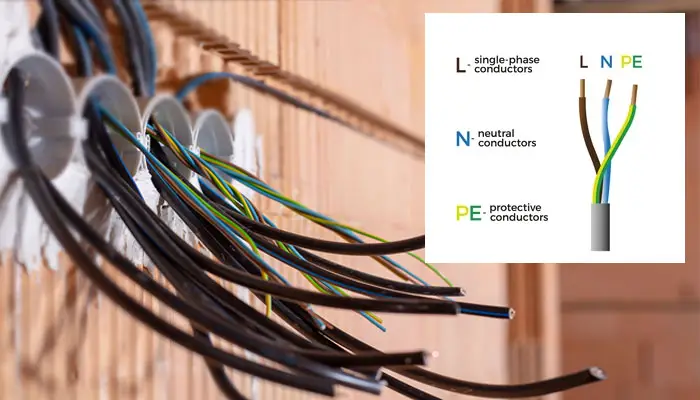Can You Put Cardboard in The Microwave? When, How, Tips to Follow
- By Infoik
- 20 Dec, 2021
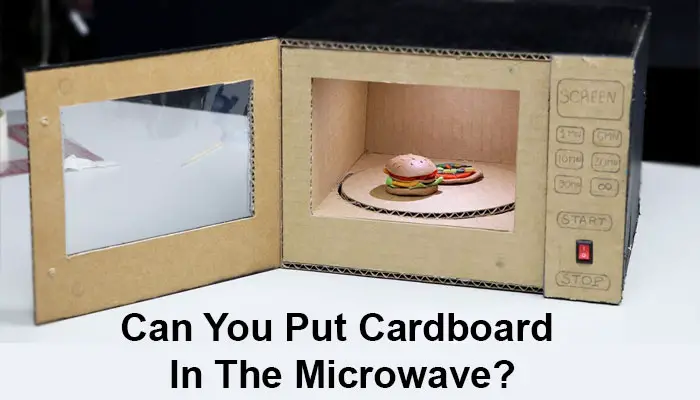
Can You Put Cardboard in the Microwave?
You might think that microwaving Cardboard would be unsafe, but it actually isn’t. In fact, when you consider how paper and Cardboard are typically used as a quick way to start fires in the first place, then this process probably doesn’t pose too much risk for your average person with no electronics savvy skills at all!
Microwaving Cardboard can cause it to catch fire, but only if you are heating your food in a way that makes the moisture come together. If this happens and there is enough energy from an open flame or hotter material nearby- things might get pretty exciting!
It’s important, though, not to heat these lovely materials because they’re made out of cellulose.
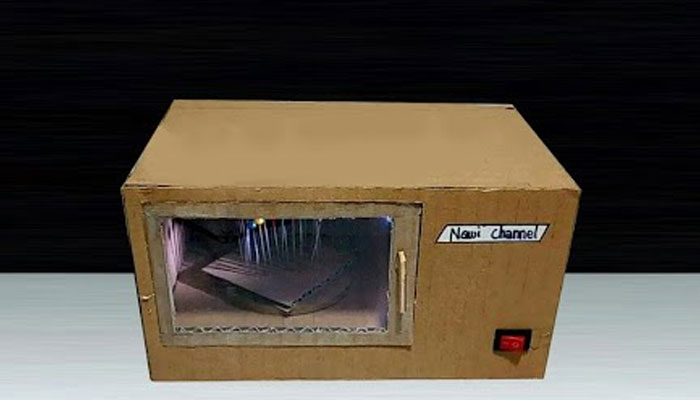
If you’re wondering whether or not to use your microwave for a quick fix, there are some pieces of cardboard container factors that should be considered. Cardboard can catch fire when in contact with high temperatures, and even though most Cardboard is safe during normal cooking times (unless it starts smoking), microwaves produce waves much stronger than any other type of electromagnetic interference, so keep this factoid at heart before opening up those doors!
There are quite a few things you should never put in the microwave, such as styrofoam, water bottle, plastic bags, aluminum foil, or stainless steel.
When Isn’t It Safe to Microwave Cardboard?
Microwaves and Cardboard are both safe in most cases, but there is one instance where it’s not recommended. Always check the labels on your container to make sure that they can be used near a microwave because some materials will melt or smolder when exposed long enough.
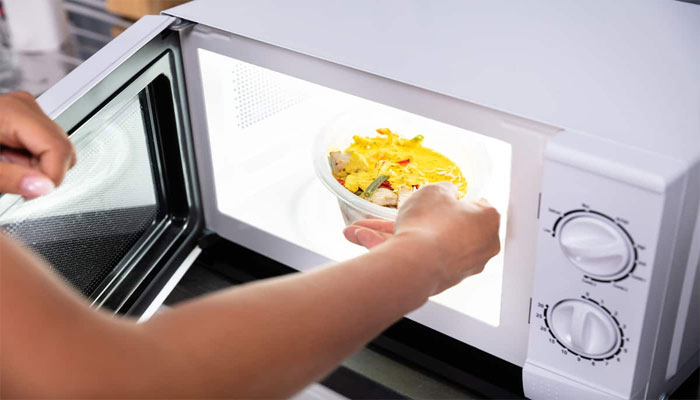
Next, only use Cardboard in the microwave for a relatively short period of time. Never on its own! You need food with your homemade box to absorb waves and because it might catch fire as well if you don’t have enough material or wetting agent that will keep it from catching flame easily- even though most people aren’t going to be cooking their meals by themselves so this shouldn’t hurt anything at all; however I would always recommend checking labels first before microwaving any container full of unknown ingredients (even if they say ‘safe microwaving’).
The most common type of container in this category would be the ones that you typically get from a Chinese takeout restaurant where the metal handles are made out of metal.
Even if your container doesn’t contain any, there’s still plenty to watch for when it comes to other materials; many types of cardboard boxes have wax coatings that may leach chemicals when heated up and can cause some serious health issues such as cancer or mutation over periods of time.
Microwaves are a great way to get food warm quickly, but not all materials respond well. Cardboard boxes can melt or explode when heated in the microwave because of how tight their fibers are packed together; this could cause a fire! If you want your meal tasting fresh and not burnt, then use an alternative such as paper towels which do allow airflow through them so they don’t sweat liquids onto any plates.
Can you microwave the Cardboard safely?
Read the manufacturer’s instructions carefully when reheating cardboard items in your microwave.
Not all materials are created equal, so be sure you know how to safely use yours before heating up any cardboard food container!
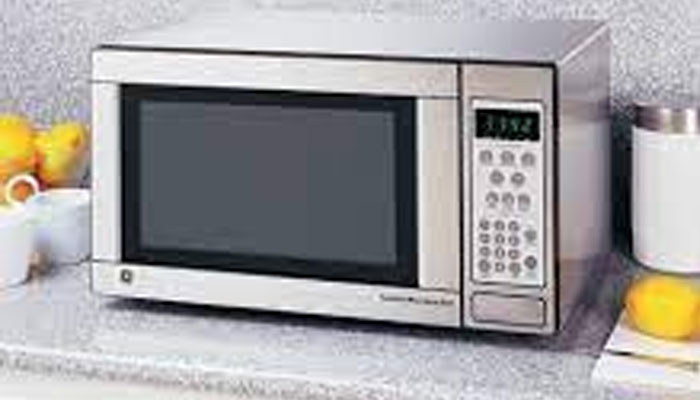
Microwave-safe Cardboard cannot be guaranteed to stay that way. It’s recommended you remove food from pizza boxes and burger boxes before reheating in order for them not to get burned on the outside, but it can still happen if microwaved incorrectly! Make sure your heating periods are short enough so as not to risk catching fire or causing other damage.
The moisture levels in the Cardboard can drop to an unsafe level if not properly cared for. Be mindful of this and watch out with microwaves around when handling your nuke-able creations, so they don’t catch fire!
How long can you microwave Cardboard?
It’s important to note that microwaving Cardboard for too long can create an unsafe fire risk. You should never exceed the time limit of 120 seconds in one go, but intervals may be longer before heating resumes if necessary. 30+ minutes is ideal since foods would take less than this amount, and coffee or tea needs more patiently heated up due to its delicate flavor profile.
3 Tips To Microwave Cardboard
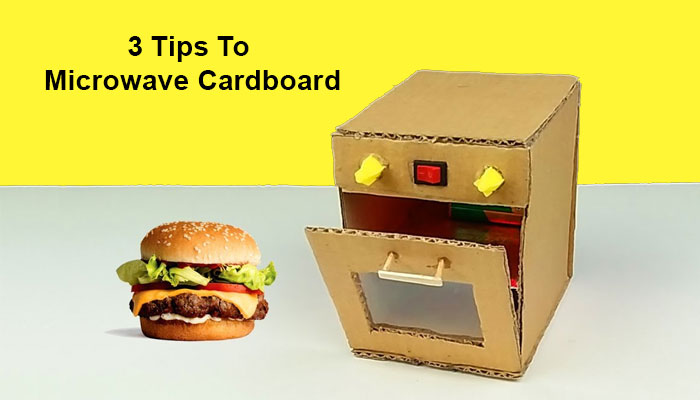
Microwaving Cardboard presents some risks in regards to overheating resulting from spontaneous combustion, plastic container, or metal particle. Here’s how you can avoid this problem:
- It’s important to check the label before using a Cardboard in your microwave oven. In some cases, manufacturers will indicate that their material has been tested and is safe for consumption or even heating with an open flame device like a stovetop or campfire!
- When you think of the word “cardboard,” do not forget about its counterpart, ‘coated or waxed cardboard.’ This type of Cardboard can present risks for burning if it comes into contact with heat from inside your microwave oven.
- The cardboard boxes used for packaging food can be excellent material. They’re cheap, lightweight, and easy to store! All that said, they do have limitations when you need your drink quickly- one of those being how long they take in a microwave before burning hot plastic coating will start leaching chemicals into it, so instead try microwaving these babies in short bursts such as 60 – 90 seconds.
FAQ:
Is it safe to put a cardboard pizza box in the microwave?
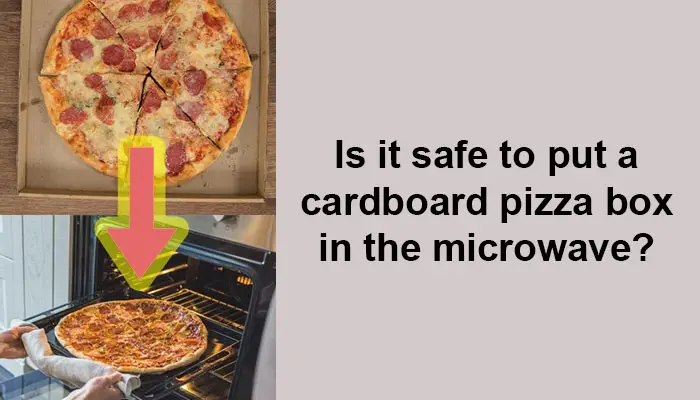
A pizza box is the safest container for a microwave oven, as it’s made of Cardboard. This material has been proven to be safe when heated in this manner, and most people don’t have any qualms about eating microwaved food that came out well enough even after being cooked on an open flame or under boiling water before cooking time had run its course!
Can you put a Dominos box in the microwave?
Dominos pizza will heat up in the microwave still in the box! The microwaves pass through and warm inside just fine, so you can enjoy your meal cold or reheat it as needed.
Are paper plates microwave safe?
Plain paper plates are not meant to be microwaved, but some disposable tableware does have a thin layer of plastic on it. Make sure you know whether or not your plate will work in the microwave before heating up any food with these dishes! Read Our blog on this topic:
Can You Microwave Paper Plates?
Is it safe to microwave pizza?
Microwaves are the worst for your favorite snack. They turn those crusty-yet soft textures of fresh pizza into a cold, hard log that won’t even bend when you stick it in front of someone else’s face.
Can you microwave frozen fries?
Microwave frozen French fries? You bet! It’s easy to cook them in the microwave, but they might come out soggy and chewy. The best way is with a tool or technique called oven-baking, which you can use for both convection ovens as well as conventional electric skillets or air fryers.
What do electromagnetic waves carry?
Electromagnetic waves can carry energy and momentum away from their source particle, but they must collide with the matter in order to impart these quantities.
What is a single water molecule?
The individual H2O molecules in a collection of water have small chemical charges, with the oxygen being positive and the hydrogen negative.
What are toxic fumes?
Toxic fumes are generally harmful gases, dust, or smoke that are produced as a result of chemical transformation activity such as heating reactions and explosions.
Toxics can come in many shapes and sizes, but they all have one thing in common: They’re not good for you! Toxin concentrations vary depending on where we live; from car exhausts to Livingston Mines’ fires.
What is the function of a radio wave?
Radio is the most versatile form of communication. Not only can it convey information from one place to another without wires, but radio also has many other uses, including sending signals and data in coded form through air or space – two media that do not conduct electricity well at all!
Microwaving Cardboard: Summary
It is clear from the above explanation that you need to make sure to read labels for manufacturer instructions before microwaving Cardboard. Otherwise, transfer food or beverages into a microwave-safe cup, bowl, or plate if reheating on your own personal meal prep! It’s also better for safety in case of an accident. Just be mindful not to overheat any dishes made out of pure fiber or cellulose materials like paper towels, so they don’t get burnt either way.
Microwaving cardboard products can be either safe or hazardous to your health. Review the type of material it is made from, as well as any potential hazards associated with using Cardboard products that have not been properly tested for durability or compatibility before being heated within a microwave oven! We recommend not microwaving cardboard products with no microwave-safe label.


